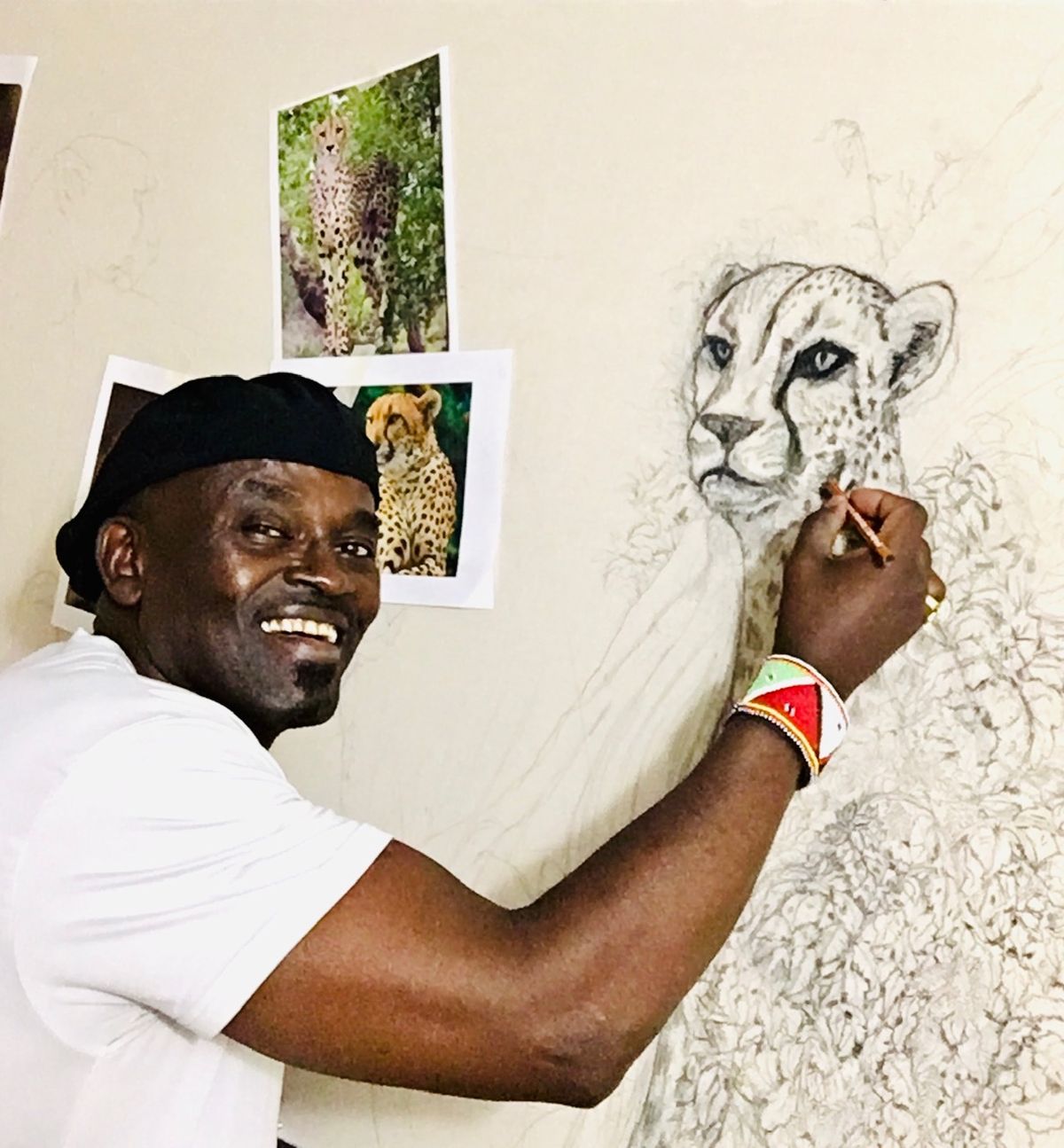Nicholas Sironka, Kenyan artist who worked on BLM mural, feels at home in Spokane

Nicholas Sironka wondered if he was still in Spokane and not his native Kenya when an angry mob invaded the U.S. Capitol this month. The sensitive north Spokane artist was shocked when the news broke that the hallowed halls in Washington, D.C., were desecrated.
“When you live in Africa, you can wake up and discover that someone has taken over your country, and you’re not surprised,” Sironka said last week. “People pull coups in Africa. We know all about it. Look at what (the late dictator) Idi Amin did in Uganda. But this is not what happens in America. This is one of the reasons it’s so good to be in America.
“You don’t have to live in a country with such unrest. What happened last week was a rude and noisy bully splashing mud on everyone. How do you extol democracy to the world after what happened last week? We all know America stands for great things. It’s just awful when people are not tolerant.”
Sironka has experienced intolerance. A 140-foot Black Lives Matter mural Sironka had painted along with 15 other artists on Main Street downtown was vandalized in June. The “A” in the word black, crafted by Sironka, was splattered with white paint. “You can fix that, which I did,” Sironka said.
Arts nonprofit Terrain, along with digital advertising agencies 14Four and Seven2, who hired 16 artists, including Sironka, for the project, sealed the work with graffiti-proof paint.
“We’re thrilled with the mural,” said Ginger Ewing, Terrain’s executive director. “People from all around the country have visited the mural. A father and son, who have been driving around the country to see all of the Black Lives Matter murals, drove in to see it.
“The response has been great. All of the artists who worked on the mural did a great job, including Nicholas, who I had as a college instructor (at Whitworth).”
Sironka, who easily veers from creating images that range from peaceful to powerful, is well past the mural’s defacement. The affable visual artist has rarely experienced racism since arriving in Spokane 21 years ago.
“I love Spokane,” Sironka said. “It’s beautiful, and so are the people. I have not experienced much racial bias since I’ve been here, especially among the adult community. I’ve had experiences with young people who drive by and shout racial things at me. But people who do that and those who deface murals are cowards.”
Sironka possesses a friendly face, which is often smiling, but he cuts an imposing figure at 6 feet, 5 inches.
“I am a nice guy,” Sironka said. “I believe in being nice to people, and people have been great to me here. But if you have any issues with me, please tell me how you feel. … Most of my experiences here are positive. Most of my friends are white, and most of those who buy my art are white.”
Much of the art Sironka is working on now is wildlife such as cheetahs, lions and giraffes. Sironka, who is in his 50s (“Where I come from, we don’t give an exact age,” Sironka said), hopes to contribute more than art and make another tangible impact in people’s lives.
“I’m training to be a counselor for substance abuse,” Sironka said. “I want to be there to help people. My initial plan was to become an art therapist, but I would like to become a counselor.”
Sironka’s great-grandfather was the first of his family to come to America. “He sold 100 cows in order to come to this country in 1923,” Sironka said. “He went to college in Boston.”
Sironka is taking classes at Spokane Falls Community College. In 2000, Sironka was named a Fulbright Scholar and lectured through 2001 at Whitworth. Students were privy to Sironka’s vibrant art, and they learned of his Maasai heritage.
Sironka was easy to spot on campus since he occasionally sported the attire of a Maasai warrior. His luminous batiks, which reflect Maasai values and traditions, couldn’t help but attract attention.
“I felt so welcome,” Sironka said. “I knew Spokane was home, and it remains so even though my children live in Africa. The people of Spokane have been there for me throughout the ups and downs of life.”
Two years after applying for a green card, Sironka’s wife, Seleina, also an artist, succumbed to an aneurysm in 2013. “I needed counseling after she died,” Sironka said. “I was grief-stricken.”
Life Center, where Sironka worships, helped Sironka navigate through one of the most difficult periods of his life. “But I held it together, and I’m still here doing what I love,” Sironka said.
In 2018, Sironka was granted citizenship. “I couldn’t be happier,” Sironka said. “That’s so even after what we all witnessed in Washington, D.C., last week. We have seen how dangerous bigotry and racism can be.
“But I’m looking forward to a change in leadership. I feel good about this new era, and I feel good about my art and opportunity in this great country that I call home.”